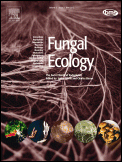
Fungal Ecology
Scope & Guideline
Fostering Global Collaboration in Fungal Research
Introduction
Aims and Scopes
- Fungal Diversity and Community Dynamics:
Research on the diversity of fungal species across various ecosystems, including the examination of community composition, niche differentiation, and the ecological roles of different fungal guilds. - Fungal Interactions and Symbiosis:
Studies that explore the interactions between fungi and other organisms, such as plants, animals, and other microorganisms, including mycorrhizal associations, endophytic relationships, and pathogenic interactions. - Impact of Environmental Changes:
Investigations into how climate change, habitat loss, and other anthropogenic factors affect fungal communities and their ecological functions, particularly in extreme environments. - Functional Ecology of Fungi:
Research focused on the functional roles of fungi in nutrient cycling, decomposition processes, and their contributions to ecosystem services. - Metagenomics and Molecular Approaches:
Utilization of advanced molecular techniques, including DNA barcoding and metagenomics, to study fungal diversity and community dynamics. - Ecosystem Restoration and Management:
Research aimed at understanding the role of fungi in ecosystem restoration, including their potential applications in bioremediation and sustainable agriculture.
Trending and Emerging
- Climate Change and Fungal Responses:
There is a rising trend in research examining how climate change impacts fungal communities, their functions, and their interactions with other organisms, reflecting the urgent need to understand ecological responses to global environmental changes. - Microbial Interactions and Community Composition:
Emerging studies are increasingly focusing on complex interactions within microbial communities, particularly how fungi interact with bacteria and other microorganisms in various ecosystems. - Functional Genomics and Metatranscriptomics:
The use of functional genomics and metatranscriptomics is becoming more prevalent, allowing researchers to explore the functional roles of fungi at a molecular level, providing insights into metabolic pathways and ecological functions. - Fungi in Extreme Environments:
There is a growing interest in studying fungal diversity and functionality in extreme environments, such as polar regions and high-altitude ecosystems, reflecting an expanding field of research. - Fungal Contributions to Ecosystem Services:
Research increasingly emphasizes the role of fungi in ecosystem services, such as soil health, nutrient cycling, and plant growth promotion, highlighting their importance in sustainability and conservation efforts.
Declining or Waning
- Traditional Taxonomy and Morphological Studies:
There is a noticeable reduction in studies focusing solely on morphological characteristics and traditional taxonomic classifications of fungi, indicating a shift towards molecular and ecological approaches. - Agricultural Pathogen Studies:
Research specifically examining fungal pathogens in agricultural contexts has decreased, possibly due to a broader focus on ecological interactions rather than solely on disease management. - Fungal Ecology in Urban Environments:
There seems to be less emphasis on the ecological roles of fungi in urban ecosystems, which may have been overshadowed by research in more natural or extreme habitats. - Studies on Fungi in Aquatic Systems:
Research focusing on aquatic fungi appears to be waning, potentially as attention shifts towards terrestrial ecosystems and their complex interactions.
Similar Journals

MYCORRHIZA
Unveiling the Secrets of Mycorrhizal NetworksMYCORRHIZA is a prestigious journal dedicated to the exploration of mycorrhizal symbiosis and its implications across various biological disciplines. Published by SPRINGER, this journal serves as a crucial platform for researchers and professionals in the fields of ecology, plant science, and molecular biology. With an impressive impact factor reflected in its 2023 quartile rankings—ranking Q1 in both Ecology, Evolution, Behavior and Systematics and Plant Science, as well as Q2 in Genetics and Molecular Biology—MYCORRHIZA plays a significant role in disseminating groundbreaking findings that advance our understanding of plant interactions and ecosystem dynamics. The journal has been active since 1991 and continues to publish cutting-edge research through 2024, ensuring that its audience remains at the forefront of scientific innovation. For additional information about publication protocols and submission guidelines, please refer to the journal's website.
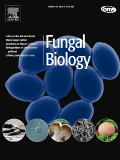
Fungal Biology
Fostering Collaboration in Fungal Research and ApplicationsFungal Biology, published by Elsevier Science Ltd, is a premier journal dedicated to advancing the field of mycology and its interdisciplinary applications. With an ISSN of 1878-6146 and E-ISSN 1878-6162, this journal serves as a vital platform for researchers and professionals interested in the ecological, evolutionary, and genetic aspects of fungi, as well as their implications in infectious diseases and plant sciences. As of 2023, it proudly holds a Q2 ranking in Ecology, Evolution, Behavior and Systematics and Plant Science, and a Q3 ranking in Genetics and Infectious Diseases, highlighting its significant contribution to these domains. The journal boasts an impressive Scopus rank, including a percentile of 83rd in Ecological studies, ensuring that published research reaches a wide audience and impacts ongoing discourse in the field. With open access options, Fungal Biology encourages the dissemination of high-quality research, aimed to foster collaboration and innovation among scholars and practitioners. With its convergence of knowledge from 2010 to 2024, this journal is instrumental for those advancing the understanding of fungal biology and its myriad applications in environmental and health sciences.

Frontiers in Fungal Biology
Advancing Mycology Through Innovative ResearchFrontiers in Fungal Biology is an innovative academic journal dedicated to advancing the field of mycology and its interdisciplinary connections, published by FRONTIERS MEDIA SA. With an E-ISSN of 2673-6128, this journal focuses on exploring diverse aspects of fungal biology, including ecological roles, evolutionary processes, and interactions with other organisms. Since its inception in 2020, Frontiers in Fungal Biology has garnered attention within the scientific community, earning a commendable Q2 ranking in both Ecology, Evolution, Behavior and Systematics, and Environmental Science categories in 2023, alongside respectable Q3 rankings in Infectious Diseases and Microbiology. The journal is committed to open access principles, making cutting-edge research freely available to a global audience, promoting knowledge sharing and collaboration. By providing a platform for rigorous research and impactful discussions, Frontiers in Fungal Biology aims to enhance the understanding of fungi and their significant roles in ecosystems, health, and biotechnology, appealing to researchers, professionals, and students alike.

FUNGAL DIVERSITY
Innovating Ecological Understanding Through Fungal ResearchFungal Diversity is a premier academic journal dedicated to advancing the science of mycology, encompassing ecological, evolutionary, and biological research involving fungi. Published by Springer, this journal has established a significant presence in the academic community since its inception in 1998, and it continues to thrive with a convergence period extending to 2024. Holding a prestigious Q1 ranking in several categories — including Ecology, Ecology, Evolution, Behavior and Systematics, and Plant Science — Fungal Diversity showcases cutting-edge research that influences ecological management, conservation, and biodiversity studies. With its notable positions in Scopus rankings, including being ranked #1 in Environmental Science - Ecology, the journal serves as an essential resource for researchers, professionals, and students interested in the complex interplay between fungi and their environments. Although it does not currently offer open access, interested readers can benefit from the journal's rich repository of peer-reviewed articles, making Fungal Diversity a vital component of the scientific literature landscape.

Botany
Pioneering research for sustainable ecosystems.Botany is a premier academic journal published by Canadian Science Publishing, dedicated to advancing the understanding of plant sciences and ecological systems. With an ISSN of 1916-2790 and an E-ISSN of 1916-2804, this journal has established itself as a respected publication in the fields of Ecology, Evolution, Behavior and Systematics, and Plant Science, reflected in its 2023 Q2 and Q3 rankings. Covering a wide range of topics, Botany is committed to fostering interdisciplinary research, promoting innovative methodologies, and disseminating significant findings from both theoretical and applied perspectives. Based in Ottawa, Canada, the journal is open access, ensuring that high-quality research is accessible to a global audience, thereby playing a crucial role in the dissemination of knowledge in the scientific community. With convergence years from 2008 to 2024, it continues to evolve alongside the scientific advancements in botanical studies, making it an essential resource for researchers, professionals, and students alike.
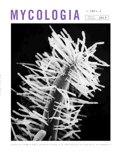
MYCOLOGIA
Unraveling the mysteries of mycology since 1945.MYCOLOGIA, published by Taylor & Francis Inc, is a prestigious journal that has been at the forefront of fungal research since its inception, with converging years of publication from 1945 to 2024. This interdisciplinary journal, identified by ISSN 0027-5514 and E-ISSN 1557-2536, stands out in various scientific categories, achieving Q1 rankings in Ecology, Evolution, Behavior and Systematics, as well as Plant Science, alongside strong performances in Cell Biology and Molecular Biology categories. With an impact factor that reflects its significance in the field, MYCOLOGIA appeals to a diverse audience, including researchers, professionals, and students dedicated to advancing the understanding of fungal biology and its ecological implications. Notably, while it does not currently operate under an Open Access model, the journal remains a vital resource for those pursuing groundbreaking discoveries in mycology and related disciplines.

Journal of Fungi is a premier open-access journal published by MDPI, dedicated to advancing the understanding of fungal biology in its myriad forms. Since its inception in 2015, it has become a vital resource in the fields of ecology, evolution, and plant sciences, attaining notable rankings in Scopus, including Q1 status in Ecology, Evolution, Behavior and Systematics, and Plant Science, with a Q2 ranking in Microbiology (medical). The journal fosters a collaborative platform for researchers, professionals, and students by providing unrestricted access to high-quality, peer-reviewed articles, which encourages the dissemination of innovative findings and methodologies relevant to fungal research. Designed to cater to a global audience, the Journal of Fungi has established its significance in the scientific community, especially from its base in Switzerland, where it continues to contribute to the ongoing discourse in mycology and beyond. With its commitment to open access since its launch and its continuous support for groundbreaking research, the journal plays a crucial role in driving forward the scientific inquiry and ecological awareness in fungal studies.
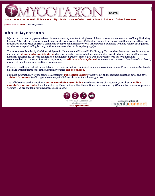
MYCOTAXON
Fostering a Deeper Understanding of FungiMYCOTAXON is a peer-reviewed journal dedicated to the field of mycology, focusing on the taxonomy, systematics, and ecology of fungi. Published by MYCOTAXON LTD, this journal plays a crucial role in advancing our understanding of fungal biodiversity and its significance within various ecosystems. Although it currently does not offer open access options, its contributions are vital to the scientific community, especially with its established presence since 1989. With an HIndex reflecting its relevance and attracting a dedicated readership, MYCOTAXON is recognized within the Q4 quartile in both Ecology, Evolution, Behavior, and Systematics, and Plant Science categories as of 2023. This places it among a critical cohort of journals that contribute to the understanding of ecological dynamics and plant-fungal interactions. Researchers, professionals, and students can benefit from the insights provided in MYCOTAXON, making it an indispensable resource for anyone involved in the study of fungi.

MICROBIAL ECOLOGY
Exploring the unseen dynamics of ecosystems.MICROBIAL ECOLOGY, published by Springer, is a premier journal dedicated to advancing the field of microbial ecology, illuminating the intricate relationships between microorganisms and their environments. Established in 1974, the journal reflects a strong historical commitment to disseminating high-quality research, with its current scope encompassing groundbreaking studies that explore microbial dynamics in various ecosystems. In the 2023 rankings, it has secured a prestigious position in Q1 across multiple categories, including Ecology, Evolution, Behavior and Systematics, and Soil Science, indicating its influential contribution to scientific literature. While it does not offer Open Access, the journal remains highly accessible to researchers and professionals via institutional subscriptions. With an impressive Scopus ranking across significant ecological categories, it serves as an essential resource for academics looking to deepen their understanding of microbial interactions and ecological processes, thereby facilitating innovative research and practical applications in environmental science.
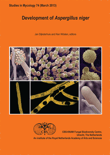
STUDIES IN MYCOLOGY
Connecting Scholars to the World of MycologySTUDIES IN MYCOLOGY is a premier journal dedicated to advancing research in the field of mycology, published by the renowned WESTERDIJK FUNGAL BIODIVERSITY INSTITUTE. With an impact factor that places it in the top quartile (Q1) of both Agricultural and Biological Sciences and Plant Science categories, it holds a prestigious position in the scientific community, ranking #1 out of 193 in its field as per Scopus metrics. Since its transition to Open Access in 2008, it has made significant strides in disseminating high-quality research widely, fostering a greater understanding of fungal biodiversity and its ecological impact. Covering a broad spectrum of topics related to mycology, the journal aims to provide researchers, professionals, and students with a platform for sharing innovative findings, stimulating academic discourse, and promoting collaborative efforts within this vital area of study. Hailing from the Netherlands, STUDIES IN MYCOLOGY serves as an invaluable resource for exploring the complexities of fungi, their interactions with various ecosystems, and their practical applications in agriculture and beyond.